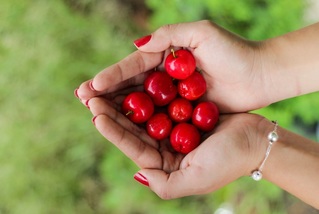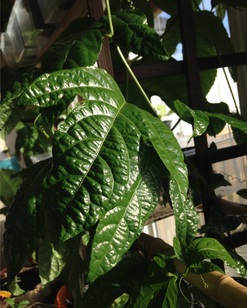 In future blogs, there will be much to cover regarding the benefits of making more meaningful connections with nature, such as both the physical and psychological and even spiritual effects of what spending time in the great outdoors can do for an individual. For now though, let’s begin with one of the most basic connections humans have with the natural world--our food. Throughout our history on this planet, food has been one of the most immediate and obvious connections we have with our environment. Whether the source has been of plant or animal in origin, our ancestors carried a great deal of knowledge on where, how and when to obtain this sustenance. Most would agree this connection we've had has dwindled to say the least. Some of today’s children, for instance have even been known to respond with surprise when shown that apples grow on trees and don’t just come from the grocery store! Change is gradually happening though, with more community gardens springing up and school curriculums evolving to include more hands-on planting, and nature based studies. We can do more by starting both in home and at the community level. Growing your own food has its rewards both in terms of health and saving money. When done in the right way, it also has sociological benefits outside the home through sharing with neighbours and as a conversation piece. The great part is you don’t have to be a master gardener in order to grow your own food either, and even if you make a dozen mistakes, it doesn’t need to be a costly endeavour. For example, instead of purchasing a $15 tomato plant from the garden centre, begin with seeds. To make things even less costly, instead of buying a packet of tomato seeds, find your favourite tomato variety from the farmer’s market or grocery store and save a few seeds from that. That way, you’ve already gotten your food before growing anything! In addition, you will end up with dozens of seeds. Next find a container. Any container will do as long as it has some drainage holes, fill with soil and water every few days and before you know it you’ve got a tomato plant—or ten—depending on how ambitious you want to be (and how much sunny window space you have. All this for little or no money (and yes you can make your own soil for free—nature does it all the time ;-) The result is fresher, healthier food and an overall feeling of contentment that you did it yourself. Add to this the option of having a child involved, and we have now created another meaningful connection for which the benefits are exponential. Teaching children the skill of growing their own food--especially healthy food--is something you cannot put a price on.  One of my daughter's 6 month old passion fruit plants taking over the house. One of my daughter's 6 month old passion fruit plants taking over the house. Once you gain a little more experience, you may want to expand to more difficult plants such as tropical trees if you have enough space. Even if you live in a cold-temperate climate like I do, you can start indoors during winter. Early last autumn, I asked my two children to pick a tropical plant or two that they’d like to try growing. To me it didn’t matter how difficult the challenge. I explained to them that this would be an experiment and we might not end up with the result we had hoped for, but we could always try again. My daughter chose passion fruit, as we all enjoyed eating passion fruit, and my son chose mandarin oranges as well as coconut, Meyer lemons, and pineapple (OK so my son likes to take on the world, while my daughter knows what she wants and goes for it). To make a long story short, the coconut is the only one we are still awaiting some success on. All the rest took at least 3 months before germination (yes, patience is key), but they are now all growing like there’s no tomorrow. Especially the passion fruit. By the way, passion fruit is a vine and so requires a trellis, so that was the only real expense for us. In the summer all these plants will move outside as part of what we like to call our "tropical oasis'. I guess in the end the point is, we made some strong and meaningful connections with what sustains us, and will continue to do so as the seasons progress. Alternatively we could have continued to purchase all our fruits and veggies from the store, but beginning this endeavour this has made us more responsible for our own survival and more aware of how we are connected with nature and our environment. Besides that, it’s healthy and best of all it’s fun!
0 Comments
Your comment will be posted after it is approved.
Leave a Reply. |
AuthorTed Bahr is the founder of Prairie Sage Permaculture Click Here for the Home Page ArchivesYou are at "Connecting with Nature"
See also... Categories |


 RSS Feed
RSS Feed
